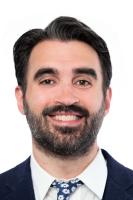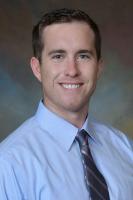What Is a Concussion?
A concussion is a temporary brain injury resulting from an impact or trauma with enough force to cause brain movement, leading to abnormal neurological function and a wide range of clinical signs and symptoms.
Signs and Symptoms
Signs and symptoms of concussion typically start immediately or soon after the impact and will evolve over hours to days.
Symptoms a concussed person may report:
- Headache or head pressure
- Memory problems
- Sensitivity to light and/or sound
- Not “feeling right”
- Nausea and/or vomiting
- Feeling tired or fatigued
- Balance problems or dizziness
- Mood changes
- Feeling sluggish, foggy, or slowed down
Signs that may be observed after concussion:
- Loss of consciousness
- Confusion or slowed responses
- Dazed or stunned look
- Inability to recall events prior to or after the hit
- Clumsiness
Diagnosis
If there is concern that an athlete has a concussion, it is important to remove them from play immediately. Removal from play does not confirm the diagnosis of concussion, but it is an essential step to avoid the potential risk of further injuries. Concussed athletes who are removed from play immediately, have quicker symptom recovery and return to sports compared to athletes who continue playing after a concussion.
Most people with concussion do not need to be seen in the emergency room. Following a suspected injury, they should be observed for the next few hours for signs of a more significant injury. Individuals who are stable or show improvement within 4-6 hours after an injury can be managed at home until an appointment with a physician can be made.
If you notice these symptoms, call 911 or visit an ER/Urgent Care:
- Prolonged loss of consciousness
- Increasing confusion or irritability
- Declining level of consciousness
- Seizures
- Repeated vomiting
- Weakness or numbness
- Extreme or unusual behavior changes
- Slurred speech
- Significant facial or posterior head bruising
- Obvious skull fracture or deformity
There is no single test that can diagnose a concussion. It is important to be seen by a health care provider with experience in the treatment of all neurological conditions and expertise in concussion management soon after an injury in order to confirm the correct diagnosis and begin appropriate treatment. Ideally, this should be within 24-48 hours of a suspected injury. The physician will make an appropriate diagnosis based on a comprehensive history and neurological exam, using ancillary testing when necessary (cognitive testing, imaging, etc.).
Treatment
It is essential to take good care of yourself after a concussion. Drinking plenty of fluids, eating healthy meals, and maintaining good sleep habits after an injury can help to minimize early symptoms. For the treatment of headache within the first 24 hours, medication should be limited to Acetaminophen (Tylenol), but after that point, other over-the-counter medications can be used (Ibuprofen/Motrin/Advil, Naproxen/Aleve, etc.).
There is a brief period following injury, typically 24-48 hours, where significant rest may be beneficial due to a high symptom burden. This period should be guided by how the patient feels and is not necessary for everyone. If an athlete feels comfortable, he or she should be encouraged to continue or gradually resume usual daily activities (excluding sports) as tolerated (including school, homework, chores, use of technology, social activity, and light physical activity) and to use accommodations early on as needed. The old approach of prolonged rest and avoidance of activity until all symptoms are gone is not helpful and is no longer recommended. Concussion should be successfully managed with an active rehabilitation approach from beginning to end that is often assisted by physical therapists and athletic trainers.
A concussion should heal completely within a couple of weeks and does not cause any permanent impairment. As the injury is recovering and symptoms are resolving, your physician will provide guidance on a gradual return to sports and other physical activity. With proper management, people can return to their usual activities in a safe and timely manner.
Learn About Baseline Concussion Testing
If you suspect that you or your child may have had a concussion recently, call (973) 718-5800. Someone will get back to you as soon as possible. Thank you for choosing Summit Health.






